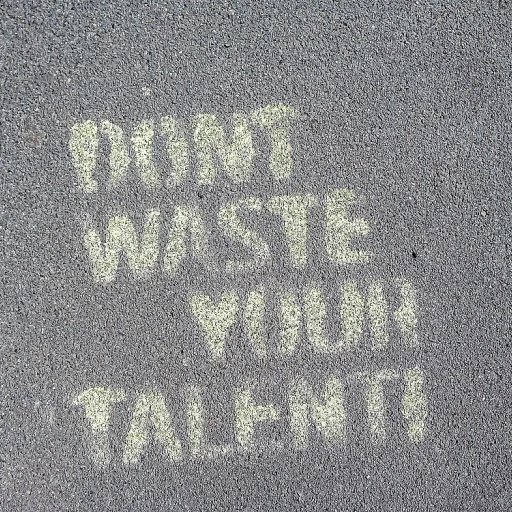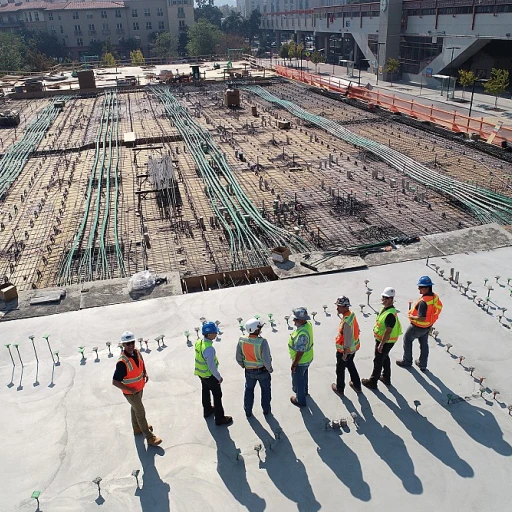
Understanding Resume Tenses
Recognizing the Significance of Verbs in Resume Writing
When crafting a compelling resume, one of the most critical aspects to consider is verb tense. This choice may seem subtle, but it carries significant weight in shaping a professional narrative that accurately reflects your career achievements and work history. Should you utilize past tense or present tense? Each has its role, depending on the content and context of your job experience. The desired outcome is to effectively communicate your suitability for the job you're targeting.
In general, past tense is used to describe work you've completed at past employers. Sentences that describe accomplishments, such as "Led a team of developers to launch a successful app," capitalize on past action verbs to convey completed projects effectively. However, for your current job, employing present tense verbs can showcase ongoing responsibilities and initiatives, like "Lead cross-functional team meetings to drive project developments." This distinction of using different tenses helps clarify how your contributions impacted previous roles versus what you actively engage in now.
Employers assess resumes not just for content but also for coherence and attention to detail. Inconsistencies in resume tense can potentially confuse or distract recruiters. Utilizing action verbs consistently across your bullet points will help maintain clarity and exhibit a polished image of accumulated experiences.
Past vs. Present Tense: When to Use Each
Choosing the Right Tense for Work Experience
When it comes to resume writing, the use of the correct verb tense is crucial. A common challenge that job seekers face is deciding between past and present tenses for their work experience descriptions. The decision of whether to apply past or present tenses can significantly impact the way achievements and responsibilities are perceived by potential employers.
For current job roles, it is generally advisable to use the present tense. This is because you are actively performing those tasks and responsibilities as a part of your ongoing career functions. For example, when describing a current role, your resume should highlight your contributions and daily tasks in present tense, adding a layer of immediacy and relevance.
On the other hand, for completed projects or previous roles that are no longer part of your current job description, it's appropriate to use past tense. Past tense helps to clearly delineate past roles and accomplishments from those responsibilities you are actively engaged in today.
Here are some examples of how tenses can effectively convey your work history:
- Current position: "Lead a team of five in the development of a new app feature, collaborating closely with cross-functional partners."
- Past position: "Developed and implemented a training program that increased productivity by 20%."
Understanding how to adeptly utilize action verbs and resume tenses in your resumes not only clarifies your work experience but also helps employers quickly grasp the scope of your career journey. To learn more about selecting the appropriate tense for your resume, you can dive into this detailed guide on crafting an impactful resume.
Remote Work Experience: Unique Considerations
Addressing the Specifics of Remote Work Experience
When it comes to tailoring your resume for remote work, it's important to understand that certain aspects of your work experience might need to be highlighted differently than in a traditional office-based job. Remote work often involves unique skills and methods of operation, and these should be appropriately conveyed through the resume tense you choose.
One major consideration is how to reflect dynamic, collaborative work environments. For example, if you've led virtual team projects, you should describe these in a way that highlights your ability to manage and contribute effectively over remote channels. Many employers value competencies like self-motivation, digital communication proficiency, and the ability to adapt to flexible schedules.
Action verbs are crucial here. In your bullet points, adopt strong verbs that vividly illustrate your contributions and achievements. Describing remote work achievements accurately can demonstrate your ability to excel independently. If past projects or completed projects were within a remote setting, using past tense can provide a clear snapshot of what you have accomplished.
Moreover, if you are currently working from a remote position, certain ongoing responsibilities should be written in present tense. This clearly distinguishes your current job functions from past role accomplishments. Clear demarcation between your past achievements and ongoing responsibilities ensures that potential employers can easily digest your work history.
To further enhance clarity in your resume and cover letter, integrating remote work efficiency techniques can show that you are adept in leveraging modern tools. These adaptations not only highlight your ability to maintain productivity but also your initiative in optimizing remote work practices.
Common Mistakes in Resume Tense Usage
Errors to Avoid When Choosing Tenses
When you're writing about your work experience on resumes, you might find yourself tripped up by tense usage. Common errors often emerge in this area, as job seekers struggle to decide which tense should describe their role and achievements. Here are some typical mistakes in resume tense usage to watch out for:
- Misusing Past and Present Tenses: It's important to use the past tense for describing completed projects and responsibilities in previous jobs. However, for your current job, the present tense is generally appropriate. Yet, candidates often mix these tenses within the same bullet points, leading to confusion.
- Inconsistency Across Job Roles: Inconsistency occurs when verbs in previous work history and your current role usage are not aligned. This inconsistency can negatively impact the clarity of your resume writing.
- Ignoring Action Verbs: Often, resumes lack dynamic action verbs which are essential to convey your active participation in the team or project. Resume examples that clearly incorporate these action verbs can highlight your career achievements effectively.
- Switching Tenses in the Same Description: It’s crucial not to switch between past and present tense within the same experience when writing about what you accomplished in a job, as it can confuse the reader about the timing of your accomplishments.
When crafting an executive resume or any resume, keeping these resume tense considerations in mind will help present a polished narrative of your work experience. For more intricate details on the nuances of past vs. present tense, our guide on choosing the right tense for your resume expands on the right approach to take.
Tips for Crafting a Remote Work Resume
Crafting the Perfect Remote Work Resume
When writing a remote work resume, ensuring it effectively showcases your past work experience is crucial. The verbs and tenses you choose can significantly impact how your achievements and experiences are perceived. Here are some tips to consider when crafting your resume:
- Use action verbs: These help convey a sense of initiative and accomplishment. Instead of just listing duties, frame your past achievements as completed projects. For example, use verbs like "developed," "improved," or "led" to highlight your role in a team.
- Past tense for past roles: When describing former positions, employ past tense verbs. This is a clear signal to hiring managers that these are completed responsibilities. For instance, "managed" instead of "manage."
- Present tense for the current job: If you include your current position, use present tense to describe ongoing tasks and responsibilities. Your resume should reflect a blend of past and present accomplishments, aiding in a comprehensive career overview.
- Consistent format: Consistency in tense use across your role descriptions provides a smoother reading experience, reinforcing clarity and professionalism. Evaluate existing resume templates or examples to maintain a cohesive look.
- Tailor for every application: Adapt your resume for different roles by emphasizing relevant skills and tasks that pertain to the job you're pursuing. Ensure your remote work experience aligns with the job requirements outlined in each application, alongside an equally compelling cover letter.
Highlighting your remote work experience appropriately can take your resume to the next level, helping you stand out in competitive job markets.
Adapting Your Resume for Different Roles
Tailoring Your Resume for Various Job Opportunities
When creating a resume for remote opportunities, adapting it for different roles is crucial. This involves more than just changing a job title or company name. To align your resume effectively, consider these strategies:- Highlight Relevant Experience: Each role may focus on different aspects of your work history. Emphasize past experiences that demonstrate skills pertinent to the current job you are applying for. For example, if a role requires team collaboration, your resume should accentuate past experiences where you collaborated with others.
- Use Appropriate Tenses: Utilize the correct verb tenses to describe your past and current job achievements. Current roles should be described in the present tense, highlighting ongoing responsibilities. Jobs or projects you completed previously should be in the past tense. For instance, say "managed a team" for a past role, but "manages a team" for a current position.
- Customize Achievements: Tailor your achievements to match the job description. This not only shows your adaptability but also how your experience aligns with the potential job's demands. Use action verbs to express your competencies effectively.
- Integrate Keywords Wisely: Job descriptions often contain essential keywords that hint at what the employer values. Include these naturally in your resume under "work experience" or "career achievements" to improve your engagement rate.
- Use Templates and Examples: Utilizing versatile resume templates can help adjust the layout and format easily based on the role's requirements. Additionally, refer to resume examples online to see how others have successfully described their remote experiences. Remember, your resume should reflect the role you aspire to fill.
- Consider the Cover Letter: The cover letter is an extension of your resume and also needs to reflect the adjustments you make based on the job role. It’s a chance to delve deeper into the specific skills that make you an ideal candidate for the position.













